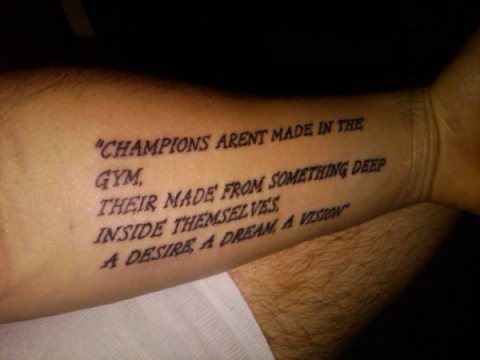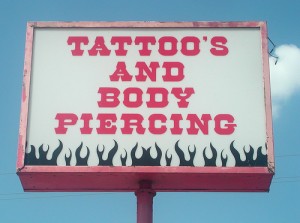In my line of work, good grammar, punctuation and spelling are all essential. Such is my dedication to these three that I have earned myself a reputation as a grammar fiend; something that I’m embarrassed and proud of in equal parts.
Although this is admittedly a very annoying trait, when your business is content marketing, it’s actually pretty darn relevant. Companies or individuals publishing content – be it blogs, news, features or whitepapers – should take the time to properly proof and edit their work… once, twice, three times if necessary. For someone like me, who takes it seriously, a grammatical error or spelling mistake could mean the difference between me paying attention to your content and dismissing it altogether. The same could be said for much of your audience.
With that in mind, I’ve compiled five of the most common mistakes I see in content; mistakes that are fairly easy to rectify with a little education and knowledge.
One: It’s not that hard to understand its meaning

I’m sure this well-known generic clothing chain offers great deals on jumpers, but its understanding of its vs. it’s remains a bit woolly (boom boom!).
It’s is a contraction of ‘it is’ or ‘it has’. Its is a term used to denote possession of something. In this case, the sign should denote that when an item is/has gone, it’s gone. Otherwise, it’s referring to the possession of something that isn’t even there.
Two: A company is singular; companies are not
Excuse me whilst I get rid of the steam coming out of my ears… This headline is wrong on many levels; one being that it treats Facebook as a plural entity when it is a singular. It should read: ‘Facebook has launched its first chat messenger desktop client’.
Think of it this way – it’s just like a single person. You wouldn’t say ‘Martin have launched his first IT system’ or ‘Who has the cookies? Charlotte have!’ If it’s one thing (company, personal, mineral, animal…) remember has and its.
Three: If you can’t use ‘your’ properly, you’re not alone
It’s simple. You’re is a contraction of you are, whilst your denotes possession. Your not saving a lot of money, you’re. Your money is saved by heading to this store (allegedly; I can neither confirm nor deny if the sign is true!).
They’re forgetting how to use their theres
Oh dearie, dearie me. This chap hasn’t been swotting up on his they’re/their/theres… neither has his tattoo artist by the looks of things. Again, this is a simple one.
There are many dogs. Use ‘there’ to make reference to something’s existence or when referring to a place. Their first love is sticks. This is used to denote possession; in this case, the first love of the dogs. They’re heading down to the forest to find some more. This is a contraction of ‘they are’.
Speaking of tattoos…
Anyone fancy getting a few tattoo’s? No? I didn’t think so. That’s because you cannot get tattoo’s; you can only get tattoos.
Contrary to what a lot of the world seems to think, plural forms do not require an apostrophe. DVDs, CVs, tattoos, cats, dogs – whatever it is, it doesn’t need it. No need. Nada.
Save your lovely apostrophes for your possessive terms. Perhaps the dog’s leash has broken, the cat’s bed looks comfy, or – for all you budding tattoo parlour owners – the tattoo’s line-work is fantastic.
* I must thank the following websites for the images – http://www.flickr.com/photos/alexmartin81/3538180459/,
http://www.geeksvilla.com,
http://www.bookmorebrides.com/if-i-give-value-for-free-does-that-mean-im-cheap,
http://notyourbestday.com/post/10524481411/another-misspelled-tattoo and
http://mainpath.com/grammar-rules-you-can-break/


